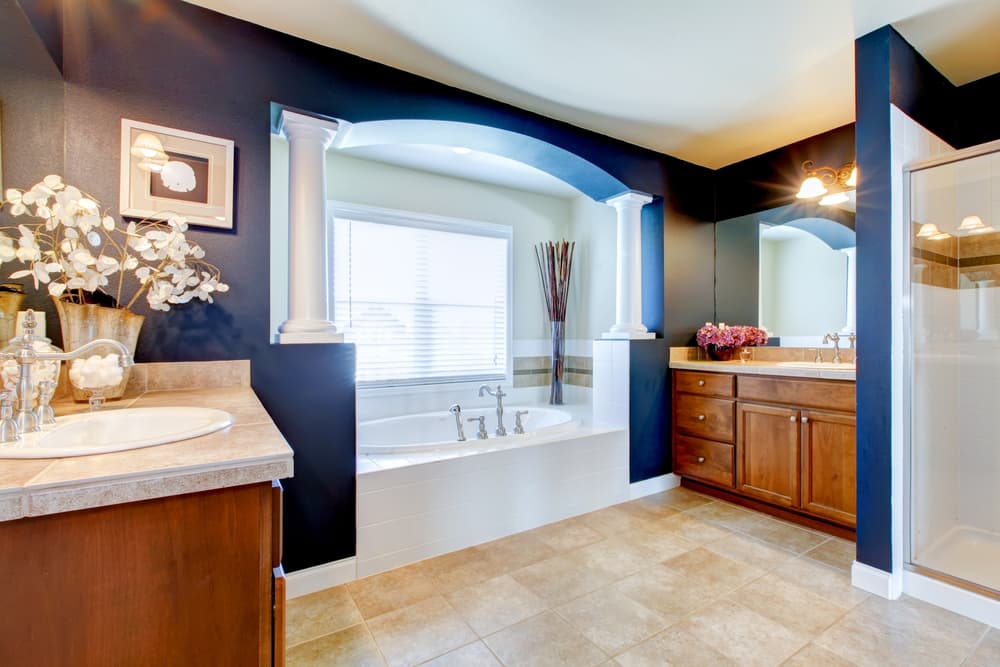How Does a Heat Pump Work | Renovation Quotes
By Amanda Harvey
Updated on November 8, 2023

More and more homeowners are looking for alternative ways to heat and cool their homes, especially those which are environmentally friendly. Though it may not be a household name just yet, the heat pump is becoming commonly used in the Canadian household. This environmentally friendly system harnesses the earth's natural energies to keep us warm during winter months and cool during summer months.
So, what exactly is a heat pump, and why isn’t everyone using it for their household? If you’re a homeowner who is environmentally conscious, or just curious about this technology, we’ve gathered all the details about heat pumps and their innovative usage methods as household heating and cooling systems.
What is a heat pump?

source: Wikimedia Commons
Although they may not be a common household system just yet, heat pumps are not modern technology and are more familiar than the average homeowner might realize. Our refrigerators and air conditioners are examples of the commonplace heat pump, though working on a much smaller scale. Heat pumps are home heating and cooling systems that transfer heat with a substance called a refrigerant, which circulates by way of a cycle of evaporation and condensation.
A compressor pumps refrigerant between two heat-exchanging coils. One of the coils works by using the refrigerant to pull heat from its surroundings, and absorbs it. Then, the refrigerant moves through the coil and is compressed while moving through to the other coil. Once it reaches the second coil, it condenses at high pressure and releases the heat absorbed during the cycle.
How does a heat pump work?
Heat pumps work by extracting heat from one place and transferring it to another, utilizing heat from the earth's ground as well as the outside air. For the home system, a heat pump provides heating during winter months as well as cooling and dehumidifying during summer months. As the earth's ground and the outside air always contain levels of heat, a heat pump works year-round with the earth to warm and cool your home. This heating and cooling system is an excellent option for the homeowner looking to incorporate environmentally-friendly heating and cooling into their setup.
As mentioned, refrigerators and air conditioners are common examples of this technology. For the homeowner to visualize the heat pump's mode of operation, we can think about how the refrigerator works, as it is just a smaller model of the heat pump system. The average fridge operates by way of an evaporator coil, which is usually located in the freezer. In the same manner, as a heat pump, this evaporator coil absorbs heat and transfers it outside the fridge, generally below the fridge where a condenser coil is located.
Air-Source VS Ground-Source Heat Pumps
There are two main types of home heat pumps, and these are air and ground source.
Air Source Heat Pump

source: Flickr, chrissiegao
There are two types of air source heat pumps, though the most common home system is an air-to-air heat pump. An air-to-air heat pump works by absorbing heat from the air in the winter and rejecting heat into the outdoor air during summer months. This is the most common type of heat pump currently used in Canada as it can be used even in urban or city environments.
Air-to-air heat pumps use up to 20 to 50% less energy than the average home heating and cooling system, and can, therefore, help the average homeowner cut electricity and heating costs greatly. Of course, savings will vary depending on the climate of your region. Air-source heat pumps require proper maintenance and upkeep. If properly taken care of, these systems can last from 15 to 20 years.
Alternatively, there is the air-to-water heat pump, and this is used in homes which are equipped with hydronic heat distribution systems. When in use, the heat pumps pulls heat from the outside air, transferring it to the water within the system. Unfortunately, air-to-water heat pumps are not an effective cooling system and are therefore rare in the average household. Further, air source heat pumps are not economically attractive in very cold climates, as they may have trouble performing if there is not enough available heat in the air.
Very recently, ductless mini-split heat pumps have begun appearing in Canada, though these only operate in homes with hydronic or electric resistance baseboard heating. These are single units that can be installed in any room of the home and are growing in market appeal.
Ground-Source Heat Pumps

source: Flickr, chrissiegao
Ground-source heat pumps aren't as common in Canadian households but are becoming more widely used. This style of pump draws and absorbs heat from the earth's ground or groundwater. Ground-source heat pumps are sometimes referred to as earth-energy systems (EESs). These systems operate by removing heat from the earth by way of a liquid, this liquid rises in temperature and the heat it harnesses is transferred to the inside of your home.
During the summertime, the process is reversed, and heat is transferred back into the ground by way of the heat pump's liquid. Ground-source heat pumps can also be designed to serve a single function, either heating or cooling exclusively.
All ground-source heat pumps have two parts: a system of outdoor piping and an indoor heat pump. The outdoor section of a ground-source heat pump can either be an open system or a closed loop. However, open systems require proximity to an underground body of water, and the water used in the system is often discharged to an above ground body of water, whereas closed loop systems collect heat by way of a continuous pipe that has been buried underground, absorbing heat from the surrounding earth.
Ground-source heat pumps require space and are therefore difficult to install and utilize in a densely-populated city. However, areas of central Canada, British Columbia and the Prairies are adopting this type of pump with more accessible ground and ground-water. As with air-source heat pumps, ground-source heat pumps are energy-efficient and will reduce heating and cooling costs for any homeowner. Further, ground-source heat pumps have a life expectancy of up to 20 to 25 years, just slightly outliving air-source heat pumps.
Get 3 renovation quotes for your heat pump energy system renovation project
RenoQuotes.com can help you get quotes for. By submitting your heat pump renovation project to us, we’ll put you in contact with top-rated contractors. Fill in the form on the homepage (it only takes a few minutes), and you will get estimates from trusted professionals.
Dial 1-844 828-1588 to speak with one of our customer service representatives
Looking for something else?
Related articles
The latest industry news, interviews, technologies, and resources.

Cynthia Pigeon
•08 Nov 2023
Are you thinking about purchasing an air exchanger to improve the comfort level in your home? If you want to get the most out of this device, installation is key.

Editorial Team
•08 Nov 2023
Even with a cozy heating temperature, maintaining warm feet during chilly winter days can be challenging. For those of us who shiver as soon as winter veers its ugly nose, and long for warm summer days, there’s a way to spare the discomfort of frozen toes: getting a floor heating system installed.

Editorial Team
•08 Nov 2023
Although kitchens and bathrooms are two distinct rooms with very different features, they both require a specific type of paint. Learn more about why regular paint isn't appropriate for these rooms:

Christine Simard
•04 Nov 2025
Even though you consider your home to be synonymous with protection and shelter, severe storms can sometimes cause severe problems. Whether it's the fault of winds, heavy rain or thunderstorms, your roof is not immune to unforeseen damage.

Cynthia Pigeon
•18 Dec 2024
With the new year ahead, major developments are being ushered into the renovation industry.